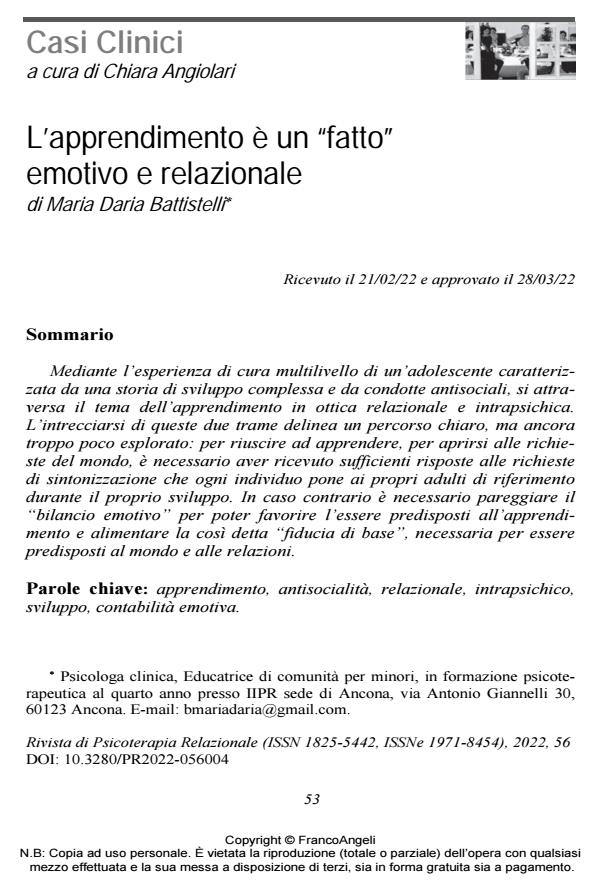Learning is an emotional and relational fact
Journal title RIVISTA DI PSICOTERAPIA RELAZIONALE
Author/s Maria Daria Battistelli
Publishing Year 2022 Issue 2022/56
Language Italian Pages 18 P. 53-70 File size 214 KB
DOI 10.3280/PR2022-056004
DOI is like a bar code for intellectual property: to have more infomation
click here
Below, you can see the article first page
If you want to buy this article in PDF format, you can do it, following the instructions to buy download credits

FrancoAngeli is member of Publishers International Linking Association, Inc (PILA), a not-for-profit association which run the CrossRef service enabling links to and from online scholarly content.
The theme of learning is crossed from a relational and intrapsychic perspective by means of the multilevel care experience of an adoles-cent characterized by a history of complex growth and antisocial be-haviors. The intertwining of these two aspects outlines a straightfor-ward but not really explored path: it is necessary to have received suf-ficient responses to the attainment requests that each places on their reference adults during their own development, in order to be able to learn and to open up to the demands of the world. On the contrary, it is essential to balance the “emotional burden” to encourage learning aptitude and to foster the so-called “basic trust” necessary to be open to the world and relationships.
Keywords: learning, antisocial, relational, intrapsychic, growth, emotional accounting.
Maria Daria Battistelli, L’apprendimento è un "fatto" emotivo e relazionale in "RIVISTA DI PSICOTERAPIA RELAZIONALE " 56/2022, pp 53-70, DOI: 10.3280/PR2022-056004